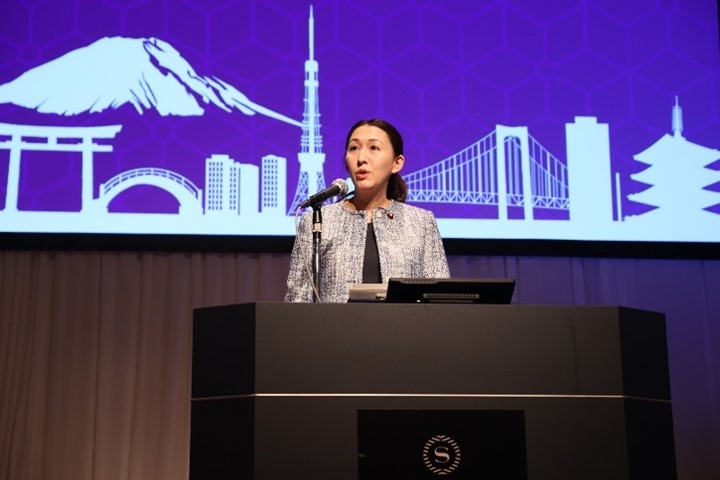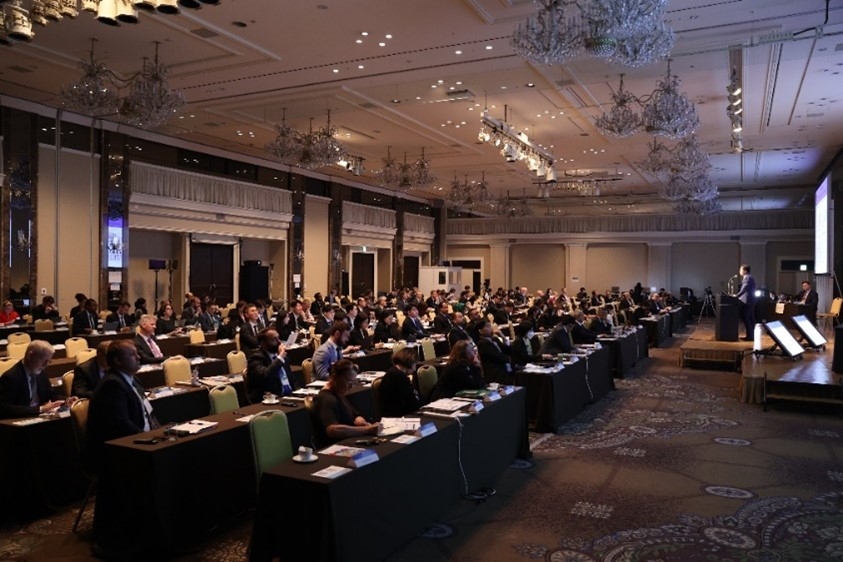Nuclear Disarmament and Non-Proliferation
The 31st Asian Export Control Seminar

The 31st Asian Export Control Seminar was held from February 18 to 20, 2025. The Seminar was organized by the Center for Information on Security Trade Control and co-hosted by the Ministry of Foreign Affairs and the Ministry of Economy, Trade and Industry. It brought together approximately 170 participants from 32 countries and regions as well as 6 international and other organizations.
1. Background
As Asian countries and regions continue to develop as manufacturing and trading hubs amid their economic growth, they are exposed to an increasing risk of unintentionally contributing to illicit procurement activities by countries of concern regarding items and technologies that can be diverted to develop weapons of mass destruction. Non-proliferation efforts including export controls is becoming increasingly important especially due to the growing complexity of supply chains, the rise of dual-use technologies and the challenging regional and international landscape. In light of these challenges, this Seminar has been held since 1993 to strengthen non-proliferation systems in Asia, which are directly linked to Japan’s security, by raising awareness and building capacity of officials in charge of export controls in Asian countries and regions.
2. Outline
(1) Opening Remarks
At the outset, Parliamentary Vice-Minister for Foreign Affairs ERI Arfiya highlighted growing proliferation risks associated with the increase in trades volume and the complexity of supply chains, and challenging regional and international landscape including North Korea's nuclear and missile development, Russia's aggression against Ukraine, and terrorism concerns as well as rapid advancements of science and technology including emerging technologies.
Against this backdrop, the Vice-Minister reiterated that the importance of this Seminar has become greater than ever, as the implementation of appropriate export controls by every country or region has become essential. She also emphasized that export controls not only prevent proliferation but also build confidence with trade and investment partners, thus contributing to creating a favorable environment for further economic growth rather than hindering trade and investment. She called on the entire non-proliferation community to work together for international peace and stability as well as further economic development. (Opening Remarks by Parliamentary Vice-Minister for Foreign Affairs Eri at the 31st Asian Export Control Seminar)
(2) Updates on Export Control Regulations outside Asia
Japan, the European Union, the United Kingdom and Canada reported the updates on their export control and sanction measures along with the challenges that they face in response to recent technological developments and changes in the international landscape. In addition, participants exchanged views on the efforts to be made by agencies to address various challenges on export controls, such as what can be done to strengthen engagement with industry.
(3) Updates on Export Control Regulations from Asian Countries and Regions
Thailand, Singapore, Bangladesh, Hong Kong, Laos, Cambodia, China, Vietnam and Pakistan introduced the updates on their export control measures, including the mechanism to implement the United Nations Security Council Resolution (UNSCR) 1540 and the introduction of export controls as well as the efforts to strengthen their implementation. During the Q&A session, participants referred to basic issues such as the organization of export control authorities and the circumstances surrounding export licensing, as well as new challenges on export control such as technology transfer, emerging technologies and countermeasures against proliferation finance.
(4) Illicit Procurement by Countries and Regions of Concern
An expert made the presentation on diversified procurement activities by entities of concern, strengthening of cooperation among export control authorities and countermeasures against technology outflow from universities and enterprises. Japan briefed on cases of illicit procurement and its networks by North Korea in violation of the relevant UNSCRs.
(5) Intangible Technology Transfer (ITT)
Australia, Japan, Norway and Malaysia introduced their initiatives to manage ITT at universities and research institutions, including amendments to the legislation such as deemed export controls, case studies of violations and outreach by agencies.
(6) Licensing
Germany, the Netherlands, Japan, the United Kingdom, Singapore and India introduced their licensing systems, policies and procedures, interagency cooperation, and best practices.
(7) Presentations by International Organizations
The United Nations’ Office for Disarmament Affairs and the Department of Political and Peacebuilding Affairs made presentations on the updates on UNSCRs 1540 and 2231. In addition, the Hague Code of Conduct against Ballistic Missile Proliferation briefed on its initiatives.
(8) Presentations by International Export Control Regimes
The Nuclear Suppliers Group, the Australia Group and the Wassenaar Arrangement introduced the efforts by the respective international export control regimes.
(9) Enforcement and Compliance
The Philippines, the Republic of Korea, Canada, and Australia introduced their initiatives in enforcement and compliance, including penalties and penalty reduction measures, outreach to industry, case studies on enforcement, and interagency cooperation. They answered the questions raised.
3. Participating Countries, Regions, and International and Other Organizations

(1) Asia (16 countries/regions)
Japan, Bangladesh, Cambodia, China, India, Indonesia, Laos, Malaysia, Pakistan, Philippines, Republic of Korea, Singapore, Thailand, Vietnam, Hong Kong and Taiwan
(2) Outside Asia (16 countries/regions)
Australia, Canada, Czech Republic, Estonia, European Union, Finland, France, Germany, Ireland, Netherlands, Norway, Spain, Ukraine, United Arab Emirates, United Kingdom and United States
(3) International and Other Organizations (6 organizations)
United Nations Office for Disarmament Affairs, United Nations Department of Political and Peacebuilding Affairs, Hague Code of Conduct against Ballistic Missile Proliferation, Nuclear Suppliers Group, Australia Group and Wassenaar Arrangement

